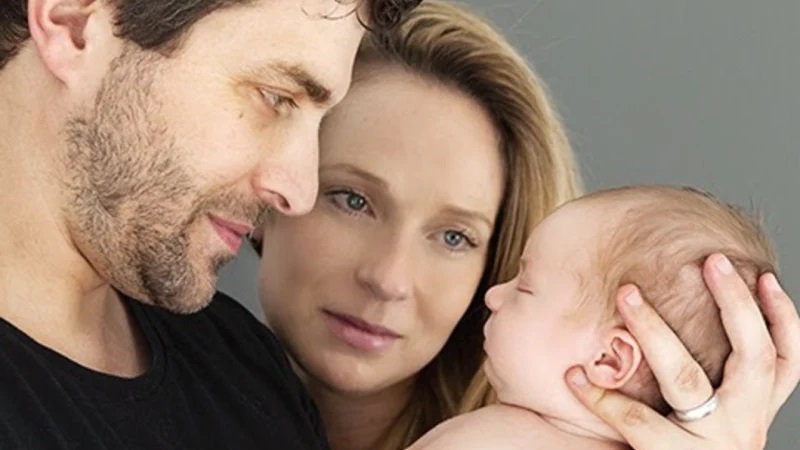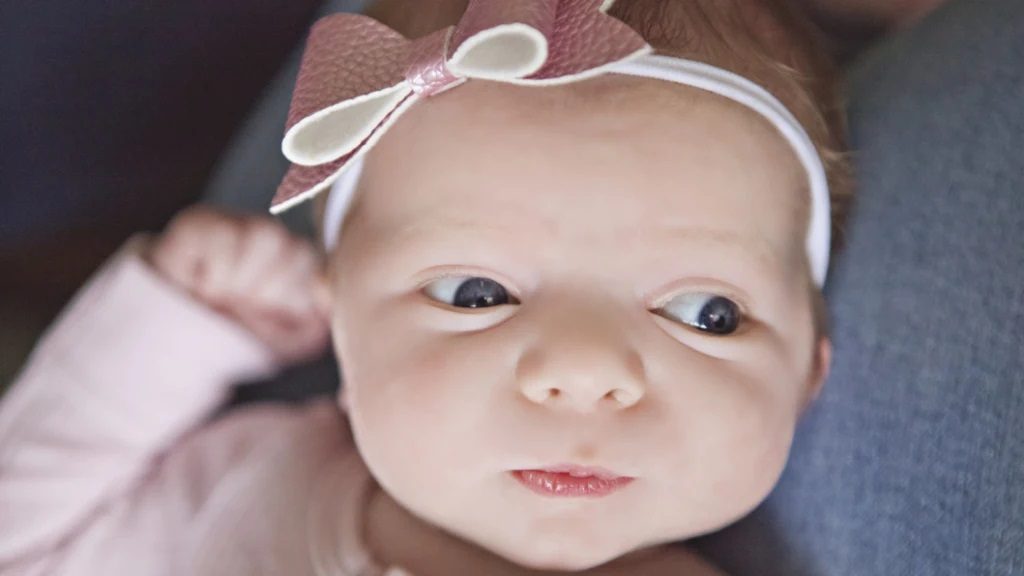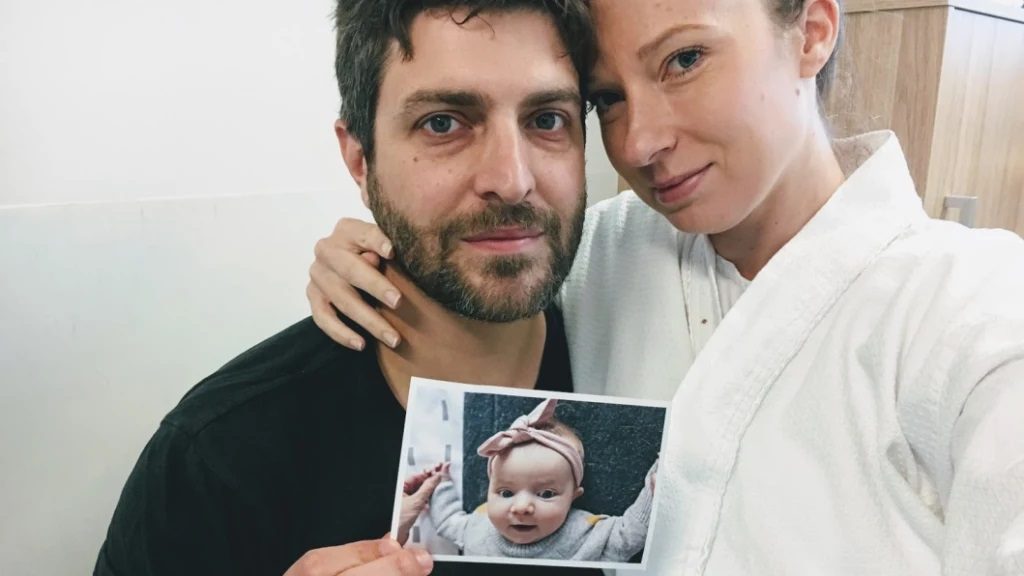Ten thousand would-be parents will get free testing to detect about 500 genes linked to severe disorders they risk passing on to unborn children in an unprecedented trial that could radically transform family planning in Australia.
Researchers are in the process of finalising the extraordinary list of severe and deadly genetic conditions that will be included in a large-scale preconception carrier screening trial. It could start recruiting couples in the second half of 2019.

The Australian Reproductive Carrier Screening Project (ARCSP) will include spinal muscular atrophy (SMA), cystic fibrosis and fragile X syndrome. Eventually, affected couples would be offered subsidised IVF treatment.
The project was dubbed “Mackenzie’s Mission” by Health Minister Greg Hunt in honour of baby Mackenzie Casella, who was diagnosed with SMA1. Mackenzie died in October 2017 at seven-months old.
Her parents Rachael and Jonathan Casella successfully campaigned for routine carrier testing. Before Mackenzie’s diagnosis, the couple had never heard of SMA or the blood test that could have warned them they both carried a gene mutation that meant their children had a one in four chance of having SMA and a one in two chance of being carriers themselves.
The $20 million pilot trial is the cornerstone of the $500 million Australian Genomics Health Futures Mission – the largest investment by the federal government’s Medical Research Future Fund.
“The magnitude of this is unprecedented,” said Stephen Robson, president of the Royal Australian and New Zealand College of Obstetricians and Gynaecologists.
“A lot of these conditions are so rare most people would have never heard of them, but they can be catastrophic when they happen.”
SMA, cystic fibrosis and fragile X were the most common of the rare conditions and would account for the vast majority of the detection, said David Amor at the Murdoch Children’s Research Institute, who is part of the trial working group.
The other diseases are so “ultra rare” that researchers would need to pool detections for the next hundred most common conditions to match the number of “the big three”, Professor Amor said.

Currently, couples can pay about $400 for carrier testing to determine if they carry the mutations for SMA, cystic fibrosis and fragile X, but they are not routinely offered and many doctors do not know the tests exist.
It is estimated that everyone carries three to five recessive genes for serious conditions. It is only when both parents carry the same mutation that their child is at risk, known as autosomal recessive inheritance.
The chances a couple would share the same mutation is very low.
Couples will only be told they have a genetic mutation if both individuals carry the same mutation for one of the 500 conditions – an estimated 1 per cent of all the couples to be tested, but some researchers suspect it could be as high as 3 per cent, Professor Amor said.
Professor Robson said the trial’s planning would need to be meticulous.
“The science and the technology is the easy part. The hard part is ensuring equity of access and being absolutely certain we are giving couples enough information to make these decisions,” he said.
The working group, led by investigators in Sydney, Melbourne and Perth, aim to recruit a diverse array of couples from a range of services, including GP clinics, to ensure the trial is representative of the Australian community.
“We don’t want to end up with genetic haves and have nots,” Professor Robson said.
“Whether you are an Indigenous couple in the Kimberley or a wealthy couple on the north shore of Sydney, you need to be given the same opportunity to be part of this.”
The conditions included will invariably be deadly or severely debilitating childhood disorders. Some will be diseases in which early diagnosis can lead to improved outcomes, if parents chose to forego IVF.
“It’s not about judging if conditions are more worthy of screening than others. We need to think about what information will be most helpful for couples,” Professor Robson said.
In Israel, a pan-ethnic screening program tests for almost 100 recessive diseases among more than 60,000 people every year.
The goal of the Australian trial is to determine whether population-wide carrier screening could be cost-effective and investigate the psycho-social and ethical impacts of screening, as well as potential barriers.
“For a government perspective, there needs to be the economic argument that the extent of the effort that goes into looking for these conditions is more than balanced by the money saved in treating them,” Professor Robson said.

The project also aims to raise awareness of preconception carrier screening among doctors and would-be couples, considering half of all pregnancies in Australia are unplanned.
“We need to think about how we make couples aware of this and how doctors can include this in conversations with patients that may want to start a family,” Professor Robson said.
Planning was still in the preliminary stages, with many details to resolve.
“We want to plan this very carefully so that when the first test is done, every possible issue has been thought through,” Professor Robson said.
He said storing participants’ genetic information must be done with strict security and privacy measures.
“Genetics is very, very personal and we need to treat that with great respect,” he said.
Professor Robson said he has been asked whether this was an attempt to create a “master race”.
“Absolutely not. This is a program with a good heart and is about empowering women and giving couples information to help them make informed decisions that they believe are right for them,” Professor Robson said.
A number of groups, such as the UK’s Don’t Screen Us Out, lobby against screening and studies have found parents of children with genetic conditions are more likely to have a more positive view of conditions, including SMA and Down syndrome, compared to those with no lived experience.
Professor Robson stressed the test would not be enforced on a couple that did not want it and the Australian public would need to consider the implications of carrier screening, which would inevitably lead to would-be parents making decisions about children before they are even conceived.
Mr Hunt said the project was “a deep, personal passion”.
“It’s about helping 10,000 couples avoid pain and tragedy such as the loss of beautiful Mackenzie Casella and giving children a long and healthy life. It’s also about building a pathway over the course of the next decade for preconception genetic testing and making it an option for parents that may want it,” Mr Hunt said.

